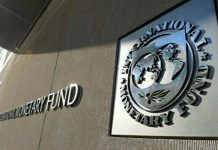Foreign Desk Report
GENEVA: The United Nations human rights chief expressed serious concern over the situation in Indian occupied Kashmir, which has been under a repressive lockdown for nearly six months, as well as on the escalating anti-Muslim violence in New Delhi where a number of people have been killed during peaceful protests against the controversial citizenship act.
Addressing the Human Rights Council, Michelle Bachelet, the high commissioner for human rights, appealed to the Indian leaders to take steps to prevent violence.
“In India more broadly, the Citizenship Amendment Act adopted last December is of great concern,” she told the 47-member Geneva-based Council.
“Indians in huge numbers, and from all communities, have expressed in a mostly peaceful manner, their opposition to the Act, and support for the country’s long tradition of secularism,” Ms.Bachelet added. The high commissioner expressed concern over reports of police “inaction” in the face of attacks against Muslims by Hindu groups, as well as previous reports of excessive use of force by police against peaceful protesters.
“This has now widened into broader inter-communal attacks, with 24 people killed since Sunday 23 February. I appeal to all political leaders to prevent violence,” she added. In Indian occupied Kashmir, Ms. Bachelet regretted that no steps have been taken to address allegations of excessive use of force and other serious human rights violations by security forces. At the same time, she noted that while some political leaders have been released, and ordinary life may be returning to normal in some respects, as many as 800 people reportedly remain in detention, including political leaders and activists.
“Schools, businesses and livelihoods have been disrupted by the continued heavy military presence,” the high commissioner said.
She also noted that the Indian government has partially restored mobile and internet services, after a decision by the Indian Supreme Court, adding that the authorities continue to impose excessive restrictions on the use of social media. Indian police have arrested 514 people for deadly Hindu-Muslim violence that broke out in the capital, the government said, as it faced mounting international criticism for failing to protect minority Muslims.
Police said the toll from days of blood-letting stood at 35, but local media, citing unnamed sources, said it was likely to be more than 40 as the full extent of the violence that began on Sunday in a densely-packed locality in northeastern Delhi becomes clear. Police are still searching drains and homes that were burnt down for bodies, officers said. More forces had been deployed at mosques in the area for the weekly Friday prayers, the government said. There had been no new violence since Wednesday morning, it said in a statement late on Thursday.
The violence began over a citizenship law that Prime Minister Narendra Modi’s Hindu nationalist government introduced in December providing a path to Indian citizenship for six religious groups from neighboring countries, but not Muslims.
Critics say the law is discriminatory and comes on top of other measures such as withdrawal of autonomy for Muslim-majority Jammu and Kashmir that has deepened disquiet about the future of India’s 200 million Muslims.
Critics of the government however blamed this week’s violence on members of Modi’s Bharatiya Janata Party (BJP), which was trounced in local Delhi elections at the beginning of the month. The Organisation of Islamic Countries (OIC) has condemned the violence against Muslims in India and vandalism of mosques and Muslim-owned properties. The OIC said authorities need to bring the instigators and perpetrators of anti-Muslim violence to justice and ensure the safety and security of all its Muslim citizens and the Islamic holy places across the country. U.S. Democratic presidential hopeful Bernie Sanders accused President Donald Trump of failing on the issue of human rights after he refused to be drawn into criticizing New Delhi for its handling of riots in the capital. Trump was on a state visit to India when the violence broke out.



